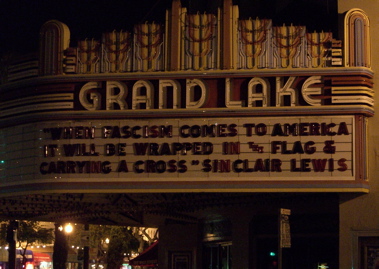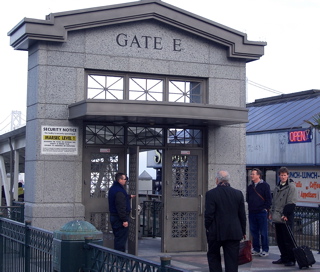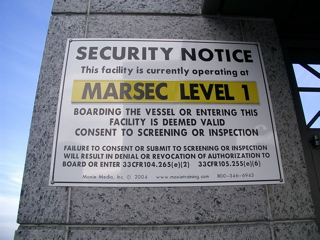Ron Dellums, who used to represent Berkeley and parts of Oakland and other East Bay locales in Congress, announced last month he’s coming out of political retirement to run for mayor of Oakland. Dellums says the decision surprised even him: He arrived at the event where he declared his candidacy uncertain whether he would run. He said he made up his mind when he took the podium and saw the yearning in the audience’s eyes. “If Ron Dellums running for mayor gives you hope, then let’s get on with it,” he said. The Chronicle quoted a supporter as saying that Oakland was “finally getting the progressive leadership it deserves.”
The campaign issues Dellums talked about in his announcement sermon were universal health care, ending poverty, and inspiring young people. About more mundane problems — the kind a mayor might actually be expected to do something about — he told reporters later: “Potholes are important, but that’s not why people asked Ron Dellums to run.”
Leaving aside the question of why he referred to himself in the third person — maybe it’s just important to keep repeating the brand name — I don’t fault him for reaching above the gritty concerns of urban life to project a lofty vision for his followers. But at some point, governing a city comes back to potholes, or at least what’s happening on the streets.
Yesterday, Dellums gave another talk, to Oakland’s African American Chamber of Commerce. He spent some time ridiculing suggestions that his experience in Congress has not prepared him to lead a city. He talked some more about universal health care, but mentioned that as mayor he’d also be concerned with education, public safety and economic matters. “We can become a model city and grapple with every problem,” Dellums said. And: “I come not to tinker at the margins, but to ask you to join me in an effort to do big things — great things.”
From the stories and TV pictures, the crowd loved what they were hearing (with the possible exception of Ignacio De La Fuente, a City Council member who was the front-runner in the mayor’s race until Dellums’ experienced his podium impulse). And what’s not to like. He’s an extraordiinary speaker. Still, the specifics?
One of the local TV stations, KTVU, ran a clip in which one of its reporters asked Dellums what distinguishes him from the other candidates in the race. Dellums called the question “grossly premature.”
OK, maybe a guy just needs time to think. But five weeks after he declared his candidacy, and just seven months before the election, it’s fair to wonder what Dellums has in mind for the city he wants to lead. Oakland’s a real place with real needs and problems, not a city on a hill. It’s wonderful to expound on ideals and possibilities, but no amount of impassioned oratory will fix them without a plan that grapples with the city as it is.
I’ve never been a big fan of Jerry Brown during his tenure in Oakland. I’ve always felt that his approach to governing the city was a little imperious and arrogant. He took office as a major leaguer who came to show the bushers a thing or two about how to get things done; he was a big thinker who was going to broaden the horizons of poor, petty Oakland; and if the locals didn’t understand how smart and wise his vision was, he’d just run over them until they got it.
But if you listen to Brown now, he at least suggests he’s learned something about the real nature of leading a city. Last month, he described being mayor as a “much more in-your-face, concrete, down-to-earth reality than what you’re faced with at the level of governor or congressman, where you’re dealing with the great issues of the day, but dealing with them at a high level of abstraction. … Instead of an omnibus crime bill, you have to deal with shootings in Ghosttown in West Oakland and sideshows in East Oakland.”
So maybe Dellums can start out by learning something from his fellow superstar and talk about what he’d actually try to do, aside from being a symbol of uplifting ideals, if he becomes mayor. In fact, the most inspirational thing he could do for the city would be to lay out a pragmatic plan for turning his progressive faith into on-the-street reality.
Like this:
Like Loading...





